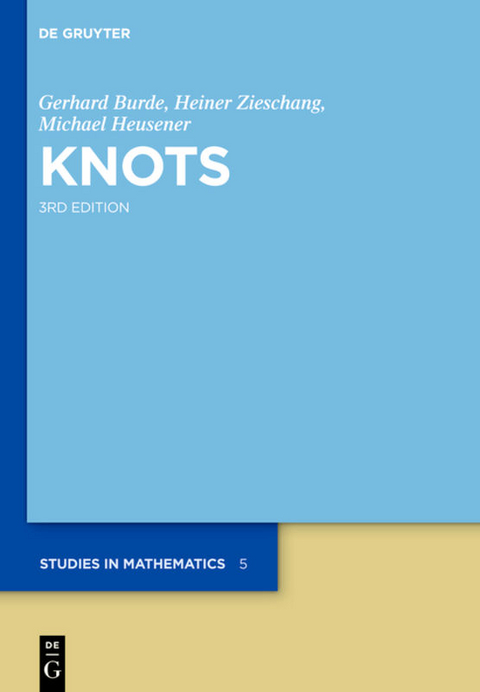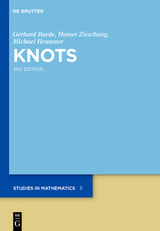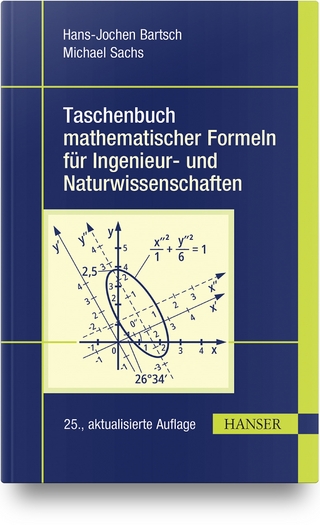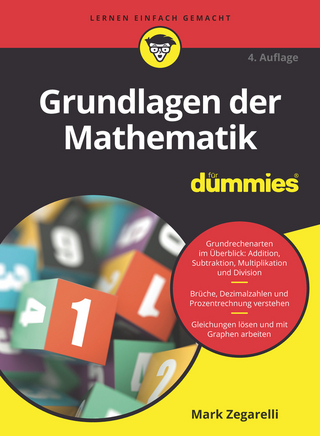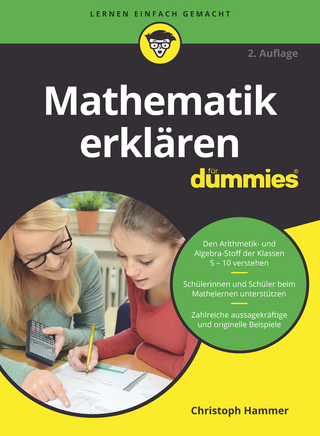Knots
Seiten
2013
|
3rd fully revised and extended edition
De Gruyter (Verlag)
978-3-11-027074-7 (ISBN)
De Gruyter (Verlag)
978-3-11-027074-7 (ISBN)
The series is devoted to the publication of monographs and high-level textbooks in mathematics, mathematical methods and their applications. Apart from covering important areas of current interest, a major aim is to make topics of an interdisciplinary nature accessible to the non-specialist. The works in this series are addressed to advanced students and researchers in mathematics and theoretical physics. In addition, it can serve as a guide for lectures and seminars on a graduate level. The series de Gruyter Studies in Mathematics was founded ca. 30 years ago by the late Professor Heinz Bauer and Professor Peter Gabriel with the aim to establish a series of monographs and textbooks of high standard, written by scholars with an international reputation presenting current fields of research in pure and applied mathematics.While the editorial board of the Studies has changed with the years, the aspirations of the Studies are unchanged. In times of rapid growth of mathematical knowledge carefully written monographs and textbooks written by experts are needed more than ever, not least to pave the way for the next generation of mathematicians. In this sense the editorial board and the publisher of the Studies are devoted to continue the Studies as a service to the mathematical community. Please submit any book proposals to Niels Jacob.
This book is an introduction to classical knot theory. Topics covered include: different constructions of knots, knot diagrams, knot groups, fibred knots, characterisation of torus knots, prime decomposition of knots, cyclic coverings and Alexander polynomials and modules together with the free differential calculus, braids, branched coverings and knots, Montesinos links, representations of knot groups, surgery of 3-manifolds and knots, Jones and HOMFLYPT polynomials. Knot theory has expanded enormously since the first edition of this book published in 1985. In this third completely revised and extended edition a chapter about bridge number and companionship of knots has been added. The book contains many figures and some tables of invariants of knots. This comprehensive account is an indispensable reference source for anyone interested in both classical and modern knot theory. Most of the topics considered in the book are developed in detail; only the main properties of fundamental groups, covering spaces and some basic results of combinatorial group theory are assumed to be known. The text is accessible to advanced undergraduate and graduate students in mathematics.
This book is an introduction to classical knot theory. Topics covered include: different constructions of knots, knot diagrams, knot groups, fibred knots, characterisation of torus knots, prime decomposition of knots, cyclic coverings and Alexander polynomials and modules together with the free differential calculus, braids, branched coverings and knots, Montesinos links, representations of knot groups, surgery of 3-manifolds and knots, Jones and HOMFLYPT polynomials. Knot theory has expanded enormously since the first edition of this book published in 1985. In this third completely revised and extended edition a chapter about bridge number and companionship of knots has been added. The book contains many figures and some tables of invariants of knots. This comprehensive account is an indispensable reference source for anyone interested in both classical and modern knot theory. Most of the topics considered in the book are developed in detail; only the main properties of fundamental groups, covering spaces and some basic results of combinatorial group theory are assumed to be known. The text is accessible to advanced undergraduate and graduate students in mathematics.
Gerhard Burde, Goethe University Frankfurt am Main, Germany; Heiner Zieschang †; Michael Heusener, Blaise Pascal University,France.
"Gerhard Burde and Heiner Zieschang's Knots has been an excellent reference for students of classical knot theory since it was first published in 1985." Mathematical Reviews
| Erscheint lt. Verlag | 15.11.2013 |
|---|---|
| Reihe/Serie | De Gruyter Studies in Mathematics ; 5 |
| Zusatzinfo | 205 b/w ill. |
| Verlagsort | Berlin/Boston |
| Sprache | englisch |
| Maße | 170 x 240 mm |
| Gewicht | 854 g |
| Themenwelt | Schulbuch / Wörterbuch ► Lexikon / Chroniken |
| Mathematik / Informatik ► Mathematik ► Allgemeines / Lexika | |
| Mathematik / Informatik ► Mathematik ► Geometrie / Topologie | |
| Schlagworte | Alexander Polynomials • braids • Branched Coverings • Cyclic Periods of Knots • Factorization • Fibred Knots • Homfly Polynomials • Knoten • Knoten (Math.) • Knot Groups • knots • Knots; Links; Fibred Knots; Factorization; Braids; Branched Coverings; Montesinos Links; Knot Groups; Seifert Surface; Alexander Polynomials; Seifert Matrices; Cyclic Periods of Knots; Homfly Polynomials • Links • Montesinos Links • Seifert Matrices • Seifert Surface |
| ISBN-10 | 3-11-027074-9 / 3110270749 |
| ISBN-13 | 978-3-11-027074-7 / 9783110270747 |
| Zustand | Neuware |
| Informationen gemäß Produktsicherheitsverordnung (GPSR) | |
| Haben Sie eine Frage zum Produkt? |
Mehr entdecken
aus dem Bereich
aus dem Bereich
Buch | Hardcover (2023)
Hanser, Carl (Verlag)
CHF 48,95
